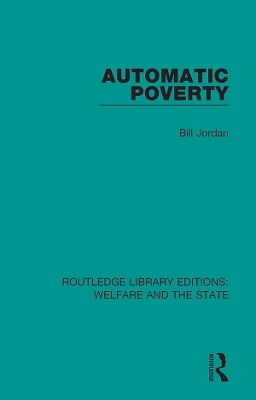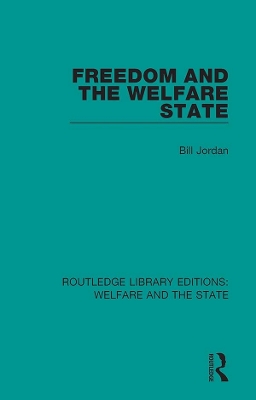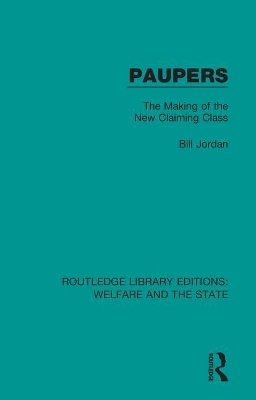Routledge Library Editions: Welfare and the State
3 primary works
Book 9
Originally published in 1981, Automatic Poverty provides a much-needed alternative to the Radical Right’s analysis. The book argues that Britain’s economic decline is symptomatic of an advanced stage of industrialisation in which productive processes are increasingly mechanised, but output remains static. Under these circumstances workers become redundant, the income of the working class diminishes, and dependence on the state increases. The ‘Ricardo phenomenon’ has become long-term feature of the British economy, and the author shows that neither Keynesian nor monetarist policies can remedy its consequences. It reflects a critical stage in the development of capitalism.
Book 10
Originally published in 1976, Freedom and the Welfare State, critiques the Welfare State in Britain and analyses the relationship between freedom and welfare. The book considers philosophical, literary and political expressions of the ideals of liberty, and relates them to present-day issues in social policy and the social services. It tackles the major questions emerging in the current welfare debate such as, does state assistance destroy individual initiative and independence and, are welfare institutions agencies of social control which reinforce the dominant economic order?
Book 11
Originally published in 1973, Paupers looks at poverty through the lens of class and the Welfare State. The book examines those living in poverty, and the direct effects poverty has. The book follows the basis that the economic factors which gave rise to poverty, have little to do with the Welfare State, and that fragmentary changes, can do little to change them. The book’s core argument examines the political and social significance of poverty, and look at the underlying causes and effects of the drift towards a more unequal and unjust society. The book also analyses the factors which bring economically disadvantaged people together, and what happens when they join for collective action.


